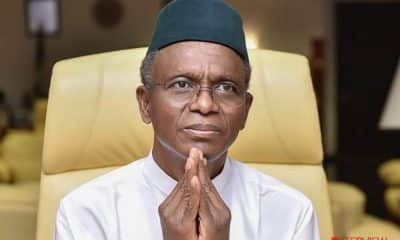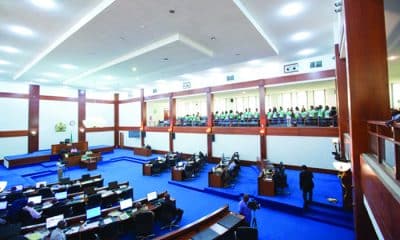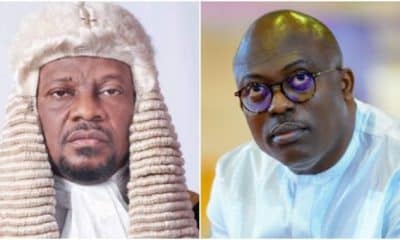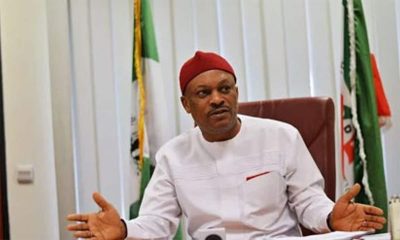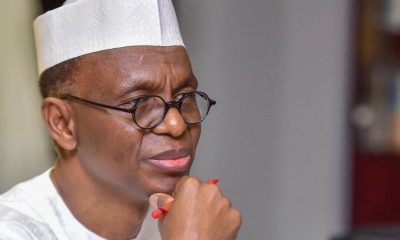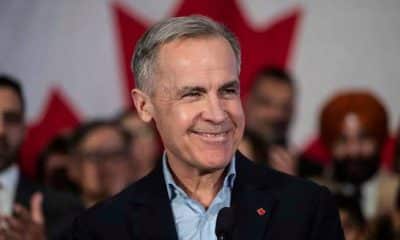Nigeria News
Shekau kills Boko Haram spokesman over supremacy battle


Embattled Boko Haram leader, Abubakar Shekau, has admitted killing the group’s purported spokesman over an apparent plot to oust him, he said in an audio recording obtained by Nigeria News.
In the 50-minute tape of a meeting with the inner circle of his militant Islamist group, Shekau said he killed “Tasiu” — also known as Abu Zinnira — who appeared in several video messages.
“You should hear me: I killed Tasiu, hear me well,” he told the gathering in Hausa, which is widely spoken across northeast Nigeria.
Shekau states the date of the meeting — December 18 — and said it had been called to discuss “those elements grumbling over the killing of Tasiu”.
Nigeria News received a copy of the recording earlier this month. The tape appears to have been meant for circulation only within the armed Islamist movement.
Shekau’s claim appears to lend weight to reports of infighting within Boko Haram, whose insurgency has killed at least 20,000 in northeast Nigeria since 2009 and left 2.6 million homeless.
– Leadership plot –
Shekau has been the most visible face of Boko Haram over the years, claiming attacks and launching rambling, often barely coherent tirades against the government in a series of videos.
But Abu Zinnira has acted on occasion as de facto spokesman and appeared in video recordings, including those about the more than 200 schoolgirls kidnapped from the town of Chibok in April 2014.
He was always shown in military camouflage, wearing a turban and with his face covered.
In one video released in August last year, Abu Zinnira warned that the remaining girls still being held would die if troops attempted to rescue them.
He also renewed calls for the release of Boko Haram members in custody.
In the December audio recording, Shekau accused Abu Zinnira of plotting with another senior commander called Baba Ammar to take over leadership of the group.
He accused them of sending fighters to carry out raids without his consent, spreading rumours among his lieutenants that he intended to kill them and portraying him as unfit to lead.
Abu Zinnira and “other elements” had tried to make him out to the rank and file as being “not on the right track”, Shekau added.
“Tell me, what is the punishment… for the people that plot against their leader?” he asked.
“By our code of allegiance we don’t hesitate to pass appropriate sanction on any one of us that commit an offence.”
– ‘Devil’s advocates’ –
Nigeria’s military claims that Boko Haram, which in 2014 held territory across northeast Nigeria, is on the brink of defeat as a result of its counter-insurgency operations since early 2015.
Sporadic attacks and suicide bombings persist but analysts tracking the conflict have been intrigued by the apparent split in the group and how it may develop.
Last August, the Islamic State group, to which Shekau pledged allegiance in March 2015, announced that Abu Musab Al-Barnawi was now Boko Haram’s leader.
Barnawi’s father, Mohammed Yusuf, founded Boko Haram in 2002. He was killed in police custody in 2009, after which Shekau — his deputy — took over.
Shekau has rejected the change in leadership and maintained he was still in charge — a position he reiterated at the December meeting.
Followers of the two factions have reportedly clashed while Barnawi has blamed Shekau’s high-handed leadership style and his indiscriminate killings of his lieutenants for the split.
Ideologically, Barnawi’s faction has opposed Shekau’s indiscriminate targeting of civilians, vowing instead to hit “hard” targets such as the military and police.
Shekau in the recording denounced his detractors as divisive influences.
“Devil’s advocates are at work, trying to instill doubt in the minds of our fighters after realising we are gathering momentum for real jihad,” he said.
“They try to confuse whoever they see getting close to me and distance him from me, they are going about dampening the spirit of our fighters.

